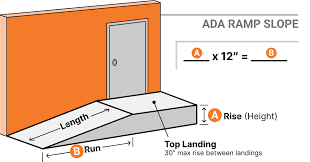
Can you repeat it? What did you say? Sorry, I missed out! Is this happens to you? Don’t worry; this happens with all of us in our daily life. Do you wish to improve your IELTS listening test? IF yes, then it sounds good! Because this article is for you? We have brought easy ways to boost your IELTS listening scores.
1. Know the Format:
Before taking an exam, you should know about its format as you must know that IELTS listening tests are probably similar to each other. But they are covering different sections, which are thirty minutes long. As you might already know, all IELTS listening tests are the same. They are the same format. Academic IELTS and general IELTS are almost similar.
For your information, we have provided you with types of listening, which is given below:
- SECTION 1: EVERYDAY ENGLISH CONVERSATION
- SECTION 2: MONOLOGUE (TARGETING SPECIAL PERSON)
- ACADEMIC CONVERSATION IN GROUP
- MONOLOGUES ON ACADEMIC TOPIC
2. USE YOLO! (You Only Listen Once)
It happens in real life. You have one opportunity to tune in. A considerable lot of us would cherish the opportunity to listen once more, yet IELTS will not give you any chance. A couple of tips discussed here help you just in one listening.:
- At the point when you rehearse tests, listen once. Become accustomed to it.
- Attempt to recognize your listening shortcomings and work on improving those regions.
- While reading the question paper, underline the important words and Get ready to listen to exact words and their meanings.
- Practice various sorts of listening circumstances (addresses, discussions, visiting, and so forth.
3. Try to Listen to Your Heart
When you are doing practice, select some interesting topics. When practising, choose interesting topics. Fascinating for YOU. If you fancy professional tennis, pay attention to digital broadcasts about professional tennis. If you prefer Roman history, pay attention to anecdotes about Roman history. Notably, we listen better to things we need to or appreciate hearing. If you truly need to propel yourself and get the best out of every listening practice, attempt this methodology. You may even have a great time doing it!
4. Audio Practice:
While picking or looking for an IELTS exam in lahore, attempt and discover ones with scripts; contents are in the same words composed of writings of the sound you pay notice. There are numerous exercises you can play at home with scripts. A couple of them are here:
- Precision check:
- Start taking notes when listening without a script.
- From that point forward, contrast your notes with the content.
- Check for exactness, spelling, and misconstruing.
- Peruse out loud: After writing, try to read the content loud, pay attention to the sound. How exactly would you say you were? Did you sound equivalent to the speaker(s)?
- Tune in and read along: Listen to the audio and follow the content while you tune in. It will make solid associations for you regarding pronunciation and grip to catchphrases. Look how the phrases are articulated more clearly and stronger.
5. Meanings/Synonyms
Have you attempted an IDP IELTS class? Indeed, you most likely realize that synonyms are significant in all pieces of the test. In the talking and composing test, you need to tell yourself the best way to utilize equivalents. In the perusing and listening test, large numbers of the inquiries use equivalents in the inquiries. For instance:
Audio text: “Duchess, who is the solitary King’s daughter…”
Listening test question:
Who is the princess?
- Duchess
- Duke
- Not given
6. Get used to listening in Real life:
Don’t think that English is just a test. It’s an international language. IELTS tests you on your insight and expertise in this language. The ideal approaches to becoming familiar with a language well and excel on the test are to utilize English, in actuality. Consistently you don’t have a discussion is a botched chance. So next possibility you have to talk, text, call, email, examine, and snicker in English!
7. Now check It Twice and Be Precise!
Little slip-ups can tally large. A couple of senseless slip-ups can be the contrast between scoring a 5.5 and a 6. Coming up next are only a couple of instances of how little mistakes can set you back:
- Sometimes, the test-taker listens to the cat, but it is cats (plural); this is your one mistake.
- Sometimes the question is to focus on one word, and you listen to the sentence and write as if it is another mistake.
- Test taker listened to 30 dollars, but the unit was not with 30.
8. Try to Think In English
Numerous language specialists concur around one key guideline. Thinking in a particular language assists you with discovering that language. Numerous understudies of English regularly attempt to interpret everything in their minds.
Try not to do it.
Interpreting has two principle issues. To begin with, it is slower. Second, you recollect your language and fail to remember the English.
On the listening test, you will not have the opportunity to interpret. Likewise, you’ll need to recall key English words. In this way, when you’re rehearsing English, try to think in English!
 Lifeyet News Lifeyet News
Lifeyet News Lifeyet News





